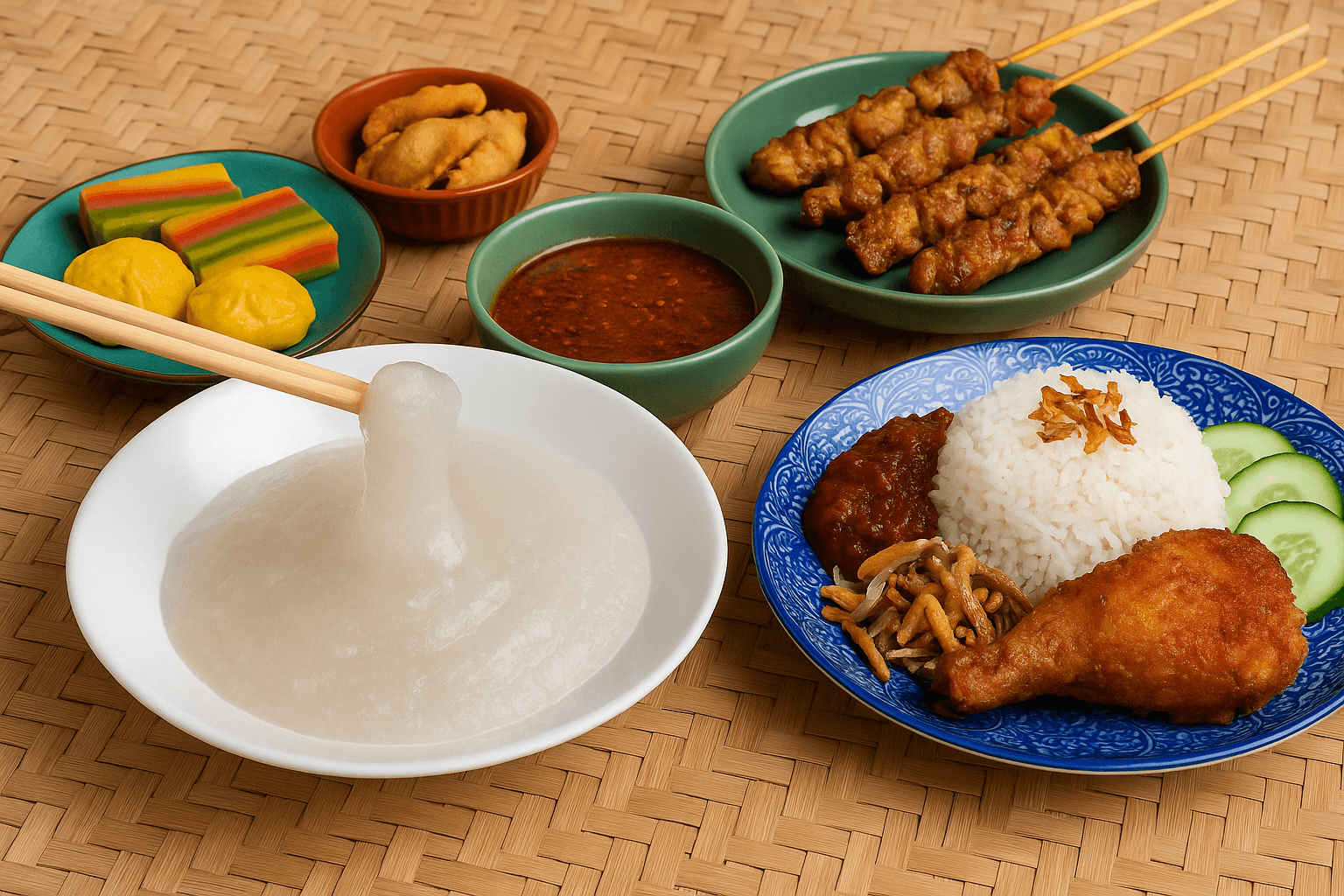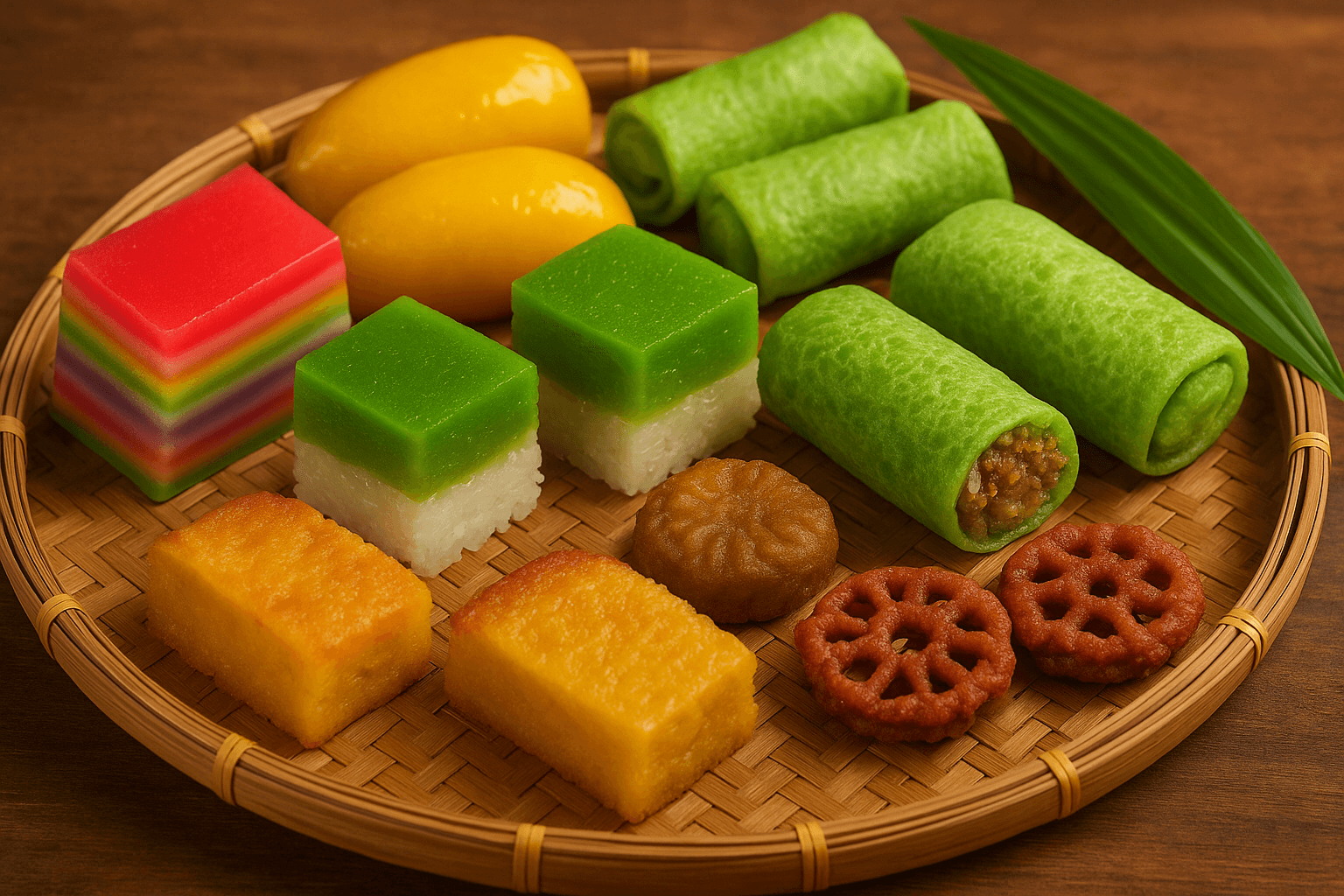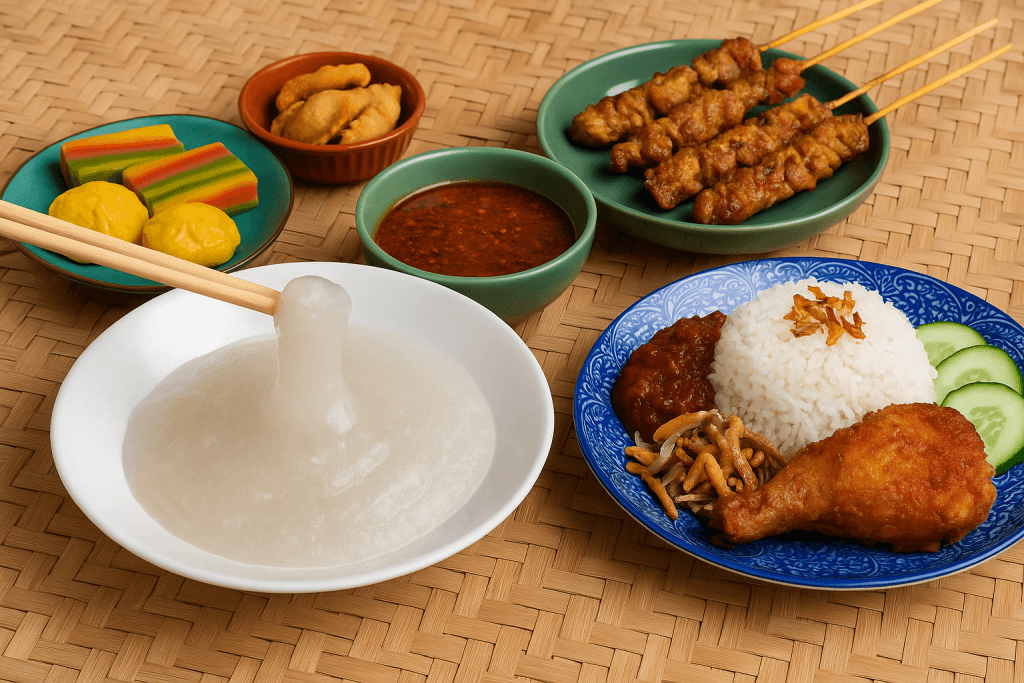Food in Brunei is more than just sustenance; it is a cultural emblem that reflects religion, tradition, and community spirit. At the heart of this cultural landscape lies Brunei Islamic Cuisine: Halal Flavors of the Nation, a culinary journey where every dish represents not only the flavors of the Malay Archipelago but also the values of halal integrity. In Brunei, cuisine is deeply rooted in Islam, making halal practices a vital aspect of the nation’s food identity. From fragrant rice dishes to festive desserts and flavorful beverages, every bite tells a story of spirituality, hospitality, and unity.
This article explores the beauty, richness, and diversity of Brunei Islamic Cuisine: Halal Flavors of the Nation, examining its cultural significance, key dishes, cooking practices, and the role of halal certification in shaping the modern food landscape. It will also highlight how Islamic culinary values guide everything from local street food to royal banquets, cementing Brunei’s reputation as a destination for authentic halal gastronomy in Southeast Asia.

The Role of Islam in Brunei’s Culinary Identity
Islam is the official religion of Brunei, and it influences almost every aspect of daily life, including food. Brunei Islamic Cuisine: Halal Flavors of the Nation is shaped by Islamic dietary laws, which dictate what is permissible (halal) and what is forbidden (haram). These guidelines ensure that meals are prepared with cleanliness, ethical sourcing, and respect for religious principles.
For Bruneians, halal cuisine is not simply about restriction; it is about embracing purity, health, and balance. Every stage of the culinary process, from selecting ingredients to serving meals, is infused with Islamic values. As a result, food in Brunei is both nourishing and spiritually fulfilling, symbolizing the close relationship between faith and everyday life.
The Concept of Halal in Brunei Food Culture
The word halal means “permissible” in Arabic. Within Brunei Islamic Cuisine: Halal Flavors of the Nation, halal goes beyond dietary laws to represent a way of life. For a dish to be halal, its ingredients, preparation, and even serving must follow Islamic principles. Meat must come from animals slaughtered in the name of Allah, utensils must be kept clean, and cross-contamination with non-halal items must be avoided.
In Brunei, halal certification is overseen by the Ministry of Religious Affairs, ensuring trust and confidence in the nation’s food system. From restaurants to food factories, halal standards guarantee that all meals respect Islamic law. This makes Brunei Islamic Cuisine: Halal Flavors of the Nation not just a national treasure but also a beacon for Muslim travelers seeking safe and authentic halal experiences.
Culinary Diversity in Brunei
While Brunei is a small nation, its cuisine is remarkably diverse, thanks to cultural exchanges with Malaysia, Indonesia, Singapore, and the wider Islamic world. Brunei Islamic Cuisine: Halal Flavors of the Nation includes influences from Arab traders, Indian spice merchants, and Chinese migrants, all of whom contributed techniques and flavors that blended seamlessly with Malay traditions. This cultural fusion created a rich tapestry of dishes that are unique to Brunei yet familiar across Southeast Asia.
Staple foods such as rice, fish, and tropical fruits form the foundation of the cuisine, while spices, herbs, and coconut enrich the flavors. The result is a balance of savory, sweet, and aromatic tastes that appeal to both locals and visitors alike.
Signature Dishes in Brunei Islamic Cuisine
Ambuyat: The National Dish
Ambuyat is considered the soul of Brunei Islamic Cuisine: Halal Flavors of the Nation. Made from sago starch, ambuyat is eaten with a bamboo fork called “chandas” and dipped into a variety of savory sauces. It represents communal dining, where families gather around a single dish, reinforcing the Islamic value of unity.
Nasi Katok
A simple yet iconic dish, nasi katok consists of white rice, fried chicken, and sambal chili paste. It embodies the everyday spirit of Bruneian life—affordable, filling, and delicious—while staying true to halal principles.
Nasi Lemak Brunei
Adapted from its Malaysian counterpart, Brunei’s version of nasi lemak includes fragrant coconut rice, eggs, anchovies, cucumber, and sambal. This dish highlights the fusion of flavors that define Brunei Islamic Cuisine: Halal Flavors of the Nation.

Satay Brunei
Grilled skewers of marinated meat served with peanut sauce are a common favorite during gatherings and festivals. Satay embodies hospitality, an essential value of Islam in Brunei.
Kueh and Traditional Cakes
Sweet treats such as kueh lapis, honeycomb cake, and kuih bahulu are staples during Islamic celebrations like Hari Raya. These colorful desserts symbolize joy, sharing, and tradition.
Islamic Festivals and Halal Food
Festivals play a central role in showcasing Brunei Islamic Cuisine: Halal Flavors of the Nation. During Ramadan, families break fast with dates, porridge, and light snacks before enjoying larger meals of rice, meats, and desserts. Hari Raya Aidilfitri brings an abundance of traditional dishes such as rendang, ketupat, and cakes that are prepared and shared among relatives, neighbors, and guests.
Every festival emphasizes charity, togetherness, and gratitude, turning food into a spiritual celebration that reinforces Islamic values.
Halal Street Food Culture
Brunei’s night markets and street food stalls are vibrant showcases of Brunei Islamic Cuisine: Halal Flavors of the Nation. From grilled fish wrapped in banana leaves to steaming bowls of noodles, the halal street food scene offers locals and tourists alike a taste of authentic Bruneian hospitality. These bustling markets not only provide affordable meals but also demonstrate the nation’s commitment to halal standards in every corner of society.
The Influence of Royal Traditions
The Sultan of Brunei and the royal family play a significant role in preserving and promoting halal traditions. State banquets and official gatherings often feature elaborate displays of Brunei Islamic Cuisine: Halal Flavors of the Nation, where dishes are prepared with precision, elegance, and strict adherence to halal guidelines. These royal feasts serve as both cultural showcases and reaffirmations of Islamic values.
Modernization and Globalization of Brunei Islamic Cuisine
As globalization shapes food cultures worldwide, Brunei Islamic Cuisine: Halal Flavors of the Nation continues to evolve. International fast food brands adapt to halal requirements, while local chefs experiment with fusion cuisine that incorporates global techniques while honoring Islamic dietary laws. From halal-certified fine dining to street food innovations, Brunei maintains a balance between modernity and tradition.
Halal tourism is also on the rise, with Brunei positioning itself as a hub for Muslim travelers seeking authentic halal culinary experiences. The nation’s emphasis on halal certification ensures that visitors enjoy both safety and authenticity.
Health and Nutrition in Brunei Islamic Cuisine
Halal food in Brunei is not only about spiritual compliance but also about health and nutrition. Brunei Islamic Cuisine: Halal Flavors of the Nation emphasizes natural ingredients such as fresh fish, vegetables, tropical fruits, and herbs. Cooking methods like grilling, steaming, and stir-frying reduce unhealthy fats while enhancing flavors. As a result, Bruneian cuisine offers a nutritious balance that aligns with both traditional practices and modern health awareness.
Education and Awareness of Halal Practices
To maintain the integrity of Brunei Islamic Cuisine: Halal Flavors of the Nation, the government actively educates citizens about halal practices. Schools, mosques, and community centers promote awareness of Islamic dietary laws, ensuring that every generation understands the importance of halal food. This emphasis on education strengthens Brunei’s identity as a nation deeply committed to Islamic values.
Global Recognition of Brunei Halal Food
Brunei’s halal certification is respected internationally, and Brunei Islamic Cuisine: Halal Flavors of the Nation is increasingly recognized on the global stage. Food exports, international food fairs, and cultural showcases highlight the nation’s culinary strengths. By promoting halal cuisine abroad, Brunei enhances its soft power and positions itself as a leader in halal gastronomy.
Conclusion
Brunei Islamic Cuisine: Halal Flavors of the Nation is more than just food—it is a reflection of identity, faith, and cultural heritage. Rooted in Islamic principles, enriched by diverse influences, and celebrated through festivals and traditions, Bruneian halal cuisine embodies the values of purity, unity, and hospitality. Whether enjoyed in family homes, bustling street markets, or royal banquets, each dish tells a story of harmony between faith and flavor. As globalization continues to shape the culinary world, Brunei remains steadfast in preserving its halal integrity while embracing innovation.
Through this balance, Brunei Islamic Cuisine: Halal Flavors of the Nation stands as a culinary treasure that honors the nation’s Islamic roots while inviting the world to savor its authentic and flavorful dishes.

